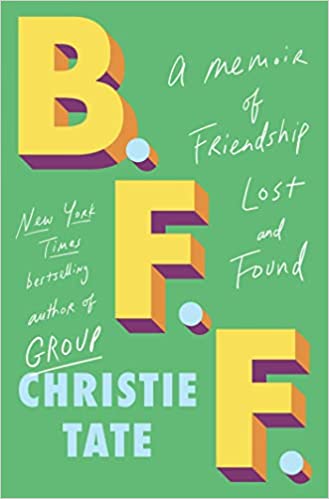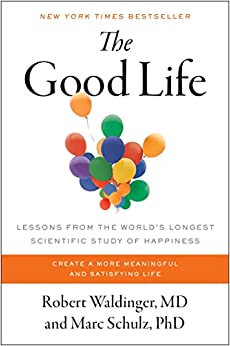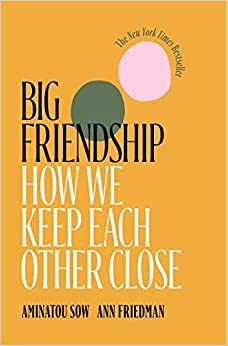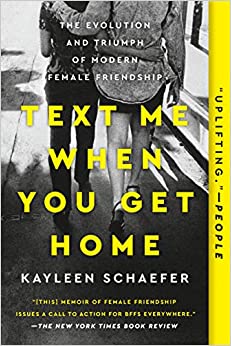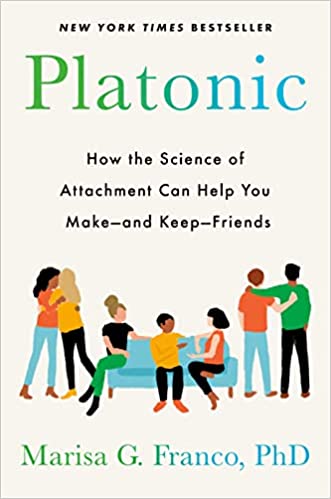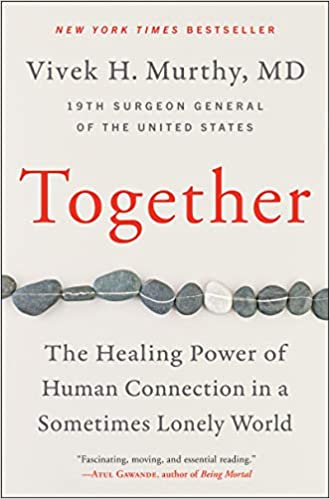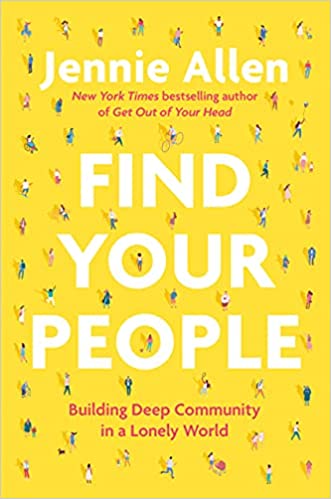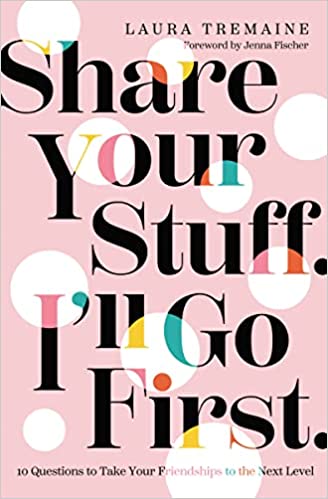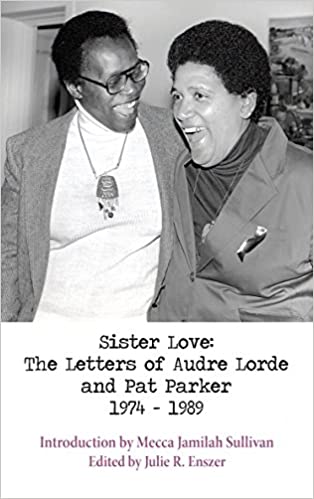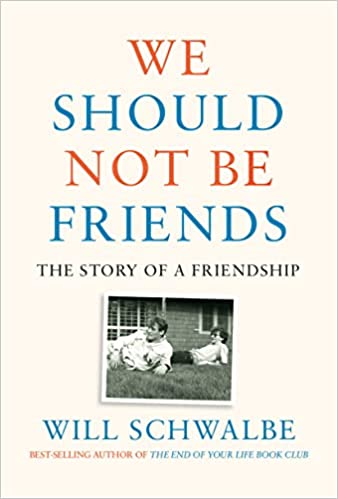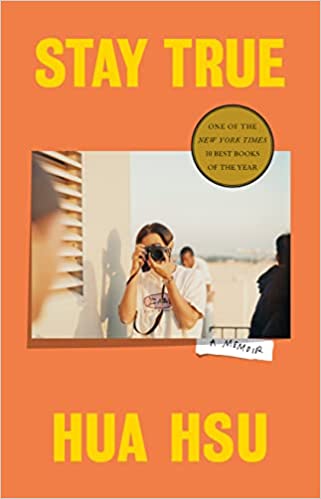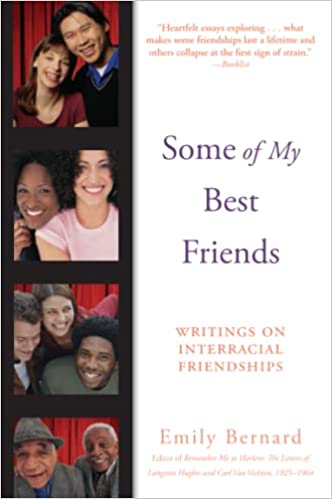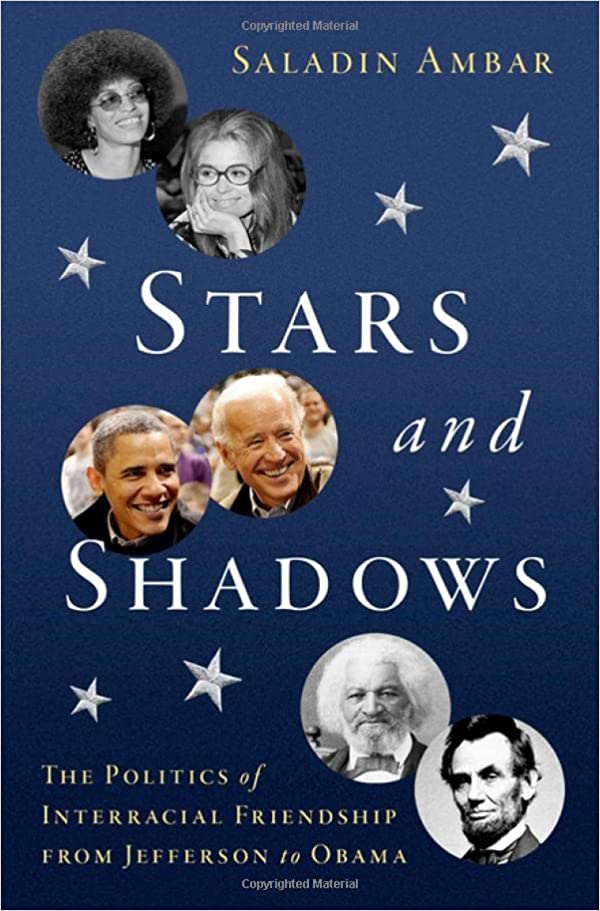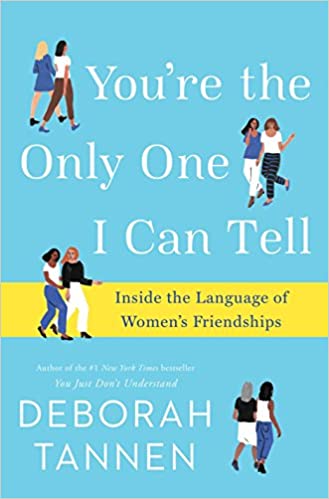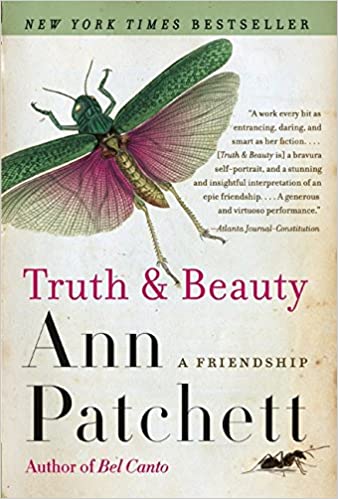In the interest of shining a light on the necessity of friendships and the challenges in making and maintaining those bonds, we’ve launched a series of articles on the topic. Here, we share a round-up of some of the best nonfiction and self-help books about the importance of friendship, with insights and practical advice on how adults can successfully make and keep new friends.
adult friendships are complicated – and worthy of our attention
Friendship. Once upon a time it seemed like an easy, natural connection that occurred without much thought or deliberate strategy. Fast forward, though, and between the digital cacophony, the 24/7 work week, economic uncertainty and the resulting burnout and anxiety, friendships between adults have gotten lost in the shuffle. Like who’s got time to have friends?
It turns out that we all need to make the time. Because friendships are a key driver of good health and well-being. They can also be a powerful force for social change.
As we dive into the world of friendships between adults, it’s worth taking a moment to think about their potential power. For instance, it’s said that the friendship between FDR and Churchill was instrumental in engaging the U.S. in the fight against Nazi Germany. Many movements for progressive social change have been fueled by the emotional engagement of a powerful actor who has a friend who is a member of an underrepresented community.
We may think of friendship as a frivolous social luxury – but it turns out that strong friendships are a necessity.
female friendships
The first round of research online about nonfiction books about friendship turns up several volumes of histories, essay collections and memoirs about the power and importance of female friendships. As females ourselves, we’re all in on the idea of reclaiming those relationships with other women as among the most precious we’ll ever have.
Those old tropes about how women can’t be friends because of rivalries and jealousies are largely extinct, thankfully. But that doesn’t mean that female friendships are easy or simple endeavors – as the plethora of nonfiction books on the subject makes clear.

Best nonfiction and self-help books about the importance of friendship for our well-being and how adults can make and keep new friends.
friendships between men and other unlikely pairings
What’s much harder than finding research and nonfiction books about female friendships, though, is finding thoughtful nonfiction books about adult friendships between males. Or books about friendships between a pair of adults who are two different genders. Or two difference races.
We’ve tried to strike a balance with this list that covers all of those bases. Because if there’s a crisis of toxic masculinity in the world right now (and we think there is), couldn’t one contributing factor for it be that men are not socialized to rely on platonic friendships to sustain them through life’s ups and downs?
And of course, that pressing matter from When Harry Met Sally is still with us, too: is it possible for a man and a woman to be friends? Just friends? How about interracial friendships: can a Black person have an authentic and deep relationship with someone from the majority culture? Society’s norms make those relationships much harder than they should be – are they actually worth all the fuss and bother?

Best nonfiction and self-help books about the importance of friendship for our well-being and how adults can make and keep new friends.
This whole friendship thing turns out to be more complicated than one might think on first blush. But understanding adult friendships, and learning how to foster more of them, seems vital for a healthy and inclusive society. So let’s get to saving the world, dear reader, one friendship at a time.
15 of the best nonfiction books about adult friendships
Here’s our edit of some of the best nonfiction and self-help books about the importance of friendship for our well-being and how adults can make and keep new friends.
1. B.F.F. by Christie Tate.
The author of the bestseller Group returns with B. F. F., a memoir focused on her “lifelong struggle to sustain female friendship, and the friend who helps her find the human connection she seeks.” This is a candid view into why it’s so hard to make and keep friendships – especially friendships between women. It’s an insightful ride, as the author “embarks on a brutally honest exploration of her friendships past and present, sorting through the ways that debilitating shame and jealousy have kept the lasting bonds she craves out of reach—and how she can overcome a history of letting go too soon.”
2. The Good Life: Lessons from the World’s Longest Scientific Study of Happiness by Robert Waldinger and Marc Schulz.
The Good Life is the report-out from the longest scientific study of happiness ever conducted. And it’s likely to become the definitive self-help book about the importance of adult friendships. The authors are the directors of the Harvard Study of Adult Development, and their headline is about the importance of human connections. They write that their data shows that “the strength of our connections with others can predict the health of both our bodies and our brains as we go through life.”
Those relationships can take many forms, both in terms of their nature and their depth. “Friendships, romantic partnerships, families, coworkers, tennis partners, book club members, Bible study groups—all contribute to a happier, healthier life.” In perhaps the most helpful section of the book, the authors show that it’s never too late to strengthen the relationships we already have. And it’s also never too late to build new ones.
3. Big Friendship: How We Keep Each Other Close by Aminatou Sow and Ann Friedman.
Let’s say that you’re fully bought into the importance of adult friendships for lifelong health and well-being. Now the question is: why is friendship so hard? There are many nonfiction books about the challenges adults face when making new friends and maintaining existing bonds. This is one of the best. As the book’s publisher puts it: “For all the rosy sentiments surrounding friendship, most people don’t talk much about what it really takes to stay close for the long haul.” The authors of Big Friendship – who co-host the hit podcast Call Your Girlfriend – share the story of the ups and downs of their first decade in one another’s lives.
4. Text Me When You Get Home by Kayleen Schaefer.
In Text Me When You Get Home, the author interviews more than one hundred women “about their BFFs, soulmates, girl gangs, and queens.” She shares insights about pop culture has shifted the beliefs about female friendships over time, elevating them to almost mythic heights when they were once considered rare and irrelevant. In a candid and open manner, she also shares her own history of struggling to find the right balance between relying on the powerful males in her life versus leaning on the emotional support of “a strong tribe of women.”
5. Platonic: How the Science of Attachment Can Help You Make–and Keep–Friends by
The well-regarded nonfiction book from 2022, Platonic, goes straight at the heart of the dilemma around adult friendships, and how to make new friends in the midst of a busy life. “How do we make and keep friends in an era of distraction, burnout, and chaos, especially in a society that often prizes romantic love at the expense of other relationships?” The answers here rely on science, psychology and field research, and the author makes a compelling case for the idea that making new friends, and deepening longstanding relationships, is possible at any age. Read this to find practical tips and methods to improve the number and quality of the connections in your life, using the insights of attachment theory and the latest scientific research on friendship.
6. Together: The Healing Power of Human Connection in a Sometimes Lonely World by Vivek H. Murthy.
In Together, originally published just as the COVID-19 lockdowns were beginning, the 19th surgeon general of the United States makes a case for loneliness as a public health concern. He offers four key steps to take to address and help solve the crisis of loneliness in Western societies: spend time each day with loved ones. Give the gift of your full attention when spending time with the people you love. Build in time for solitude, reflection and personal joy each day. Help others, and be willing to accept help. If loneliness is a universal condition that touches people from every walk of life, the only way to reduce it is purposeful actions on the part of each of us – alone and together.
7. Find Your People: Building Deep Community in a Lonely World by Jennie Allen.
The author of Get Out of Your Head returns with Find Your People, a self-help book that seeks to help solve the epidemic of loneliness in America. She offers a pragmatic take on how to find and build friendships as an adult with straightforward actionable recommendations. Like finding simple ways to press through awkward to get to authentic in conversations. Understanding how conflict can strengthen relationships rather than destroy them. And identifying the type of friend you are and the types of friends you need.
8. Share Your Stuff. I’ll Go First.: 10 Questions to Take Your Friendships to the Next Level by Laura Tremaine.
In many situations, oversharing is considered a serious faux pas and to be avoided at all costs. But taking that same judgmental tone and shaming negative reaction into personal relationships can be detrimental to forging deep and lasting friendships. In Share Your Stuff, the author poses 10 questions to help ignite deeper conversations, more vulnerability and trust
9. Sister Love: The Letters of Audre Lorde and Pat Parker 1974-1989.
We have LitHub to thank for bringing this wonderful book to our attention. The Black poets Audre Lorde and Pat Parker first met in 1969. They began exchanging letters regularly five years later. Over the next fifteen years, the two shared ideas, advice, and confidences through handwritten and typewritten letters and postcards. Sister Love compiles all of this correspondence into a brilliant portrait of female friendship.
10. We Should Not Be Friends: The Story of a Friendship by Will Schwalbe.
What’s the interior life of a friendship between two men? Sure, there are lots of war movies, buddy flicks and outlaw heroes. But seriously, in real life, are platonic ties between men exactly like those between women? And if they’re not, how do they differ? We Should Not Be Friends is a poignant and lovely glimpse into one such friendship. A bookish college junior who looks down on “the jocks” at his school forms an unlikely friendship with one of . . . the jocks. Their college friendship endured and thrived for forty years – and their ups and downs provide an intimate look at a lifelong platonic relationship between men.
11. Stay True by Hua Hsu.
In Stay True, a New Yorker staff writer recounts the lifelong impact of a friendship born in college that ended tragically less than three years after it began.
12. Some of My Best Friends: Writings on Interracial Friendships, edited by Emily Bernard.
Some of My Best Friends examines the complexities of interracial friendships of all kinds: LatinX and white. Black and Asian. Black and Jewish. In essays from writers including Pam Houston, Darryl Pickney, Luis Rodriguez and Susan Straight,
13. Stars and Shadows: The Politics of Interracial Friendship from Jefferson to Obama by Saladin Ambar.
Stars and Shadows is one of the most ground-breaking of the nonfiction books about the importance and power of adult friendships on our list. It’s a fascinating historical look at unlikely and improbable interracial friendships that ended up driving social change. The ten examples here make it clear that in some cases, a personal friendship has been the catalyst for progress. And for a broader understanding of what a functioning multiracial democracy could be. Private feelings and relationships can turn into an inspiring vision for the future – meaning that unlikely friendships have the potential to play a significant role in efforts to shape and change public opinion. Politics makes strange bedfellows . . . and sometimes those unlikely friendships are actually the catalyst for lasting progress.
14. You’re the Only One I Can Tell: Inside the Language of Women’s Friendships by Deborah Tannen.
A few ill-considered words can break friendship bonds that have been built over years. In You’re the Only One I Can Tell, the author – a celebrated linguist – shows how to avoid those conversational minefields. Leveraging her extensive research, she deconstructs the ways in which women friends talk to each other. And how words and conversation can bring friends closer. Or pull them apart.
15. Truth and Beauty: A Friendship by Ann Patchett.
We close our list of the best nonfiction books about adult friendships and their importance with a gem. “Ann Patchett and the late Lucy Grealy met in college in 1981, and, after enrolling in the Iowa Writer’s Workshop, began a friendship that would be as defining to both of their lives as it was to their work.” Their relationship spanned almost 20 years, and Truth and Beauty is a moving account of what happens when one friend fell terminally ill and the other became determined to make her final days as meaningful as possible. Patchett is one of our favorite writers, and this nonfiction work is a beautiful example of her gifts.
best nonfiction books about adult friendships
That’s our roundup of some of the best new nonfiction and self-help books about the importance of friendship for our health and well-being – and how as adults we can make and keep new friends.

